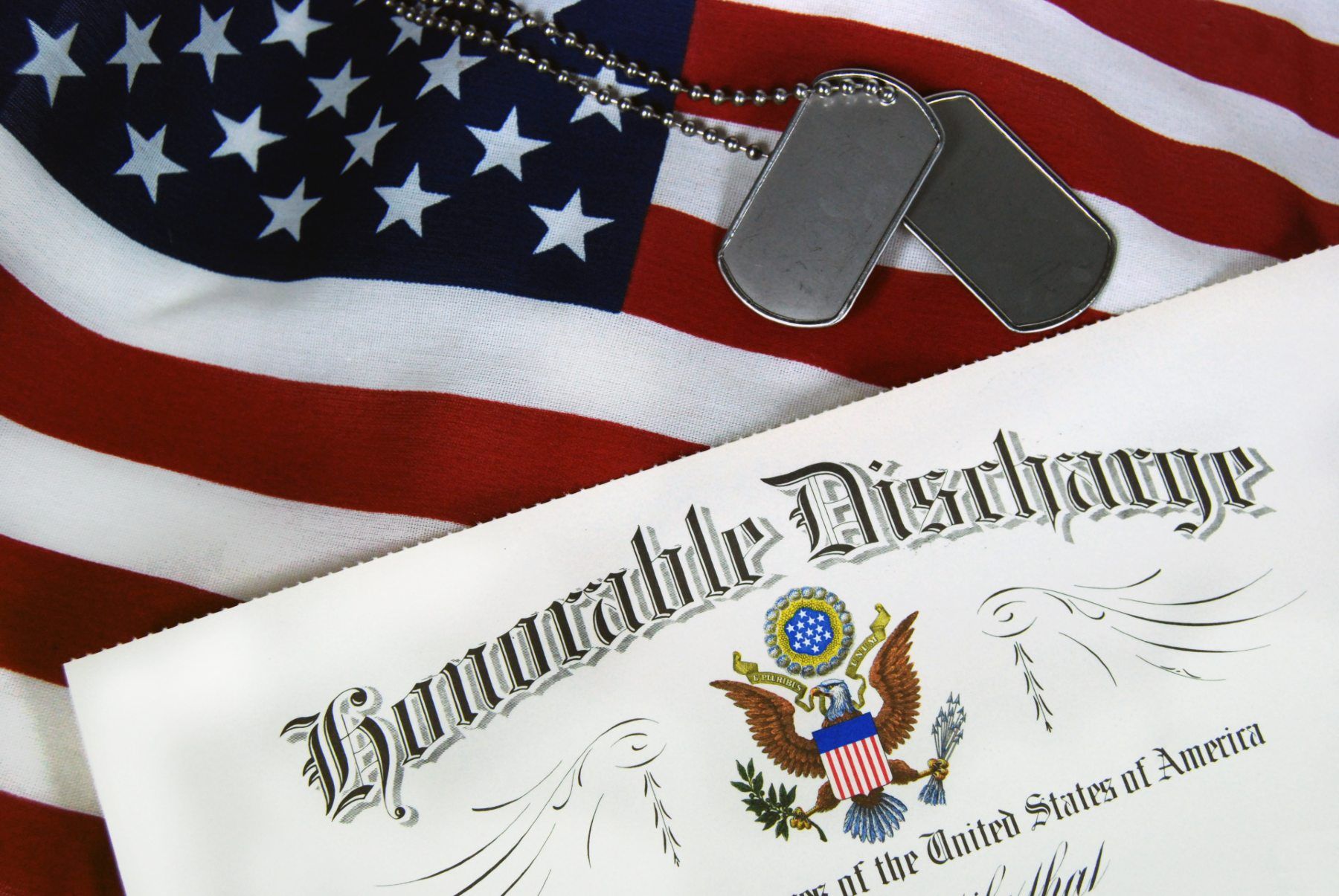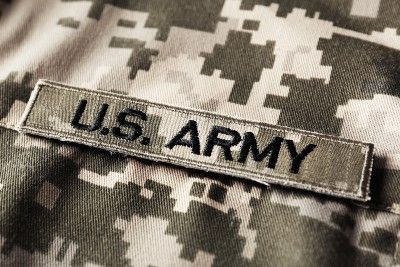Top Class Actions’s website and social media posts use affiliate links. If you make a purchase using such links, we may receive a commission, but it will not result in any additional charges to you. Please review our Affiliate Link Disclosure for more information.
A settlement agreement has been reached in class action lawsuit filed by former soldiers who claimed the United States Army wrongly classified their discharge status.
The plaintiffs have been fighting for an honorable discharge since 2017, arguing their post-traumatic stress disorder (PTSD) status was not considered upon their leaving the service.
“The Army routinely fails to treat these soldiers’ serious mental health conditions and instead gives them less-than-Honorable discharges,” the plaintiffs alleged in their initial complaint.
The decision stripped named plaintiffs Steve Kennedy and Alicia Carson of their benefits as veterans of the military, the lawsuit contends, despite their documented disabilities in the form of PTSD and other disorders.
The class action lawsuit contends soldiers who’ve been diagnosed with PTSD being discharged without honors conflicts with guidance issued by former Secretary of Defense Chuck Hagel.
The so-called Hagel Memo directs military boards to give “liberal consideration” to these medical conditions when classifying discharges.
The settlement terms require the Army’s review board to apply the memo’s standards. It also gives the some 50,000 soldiers who’ve been given a less-than-honorable discharge between October 2001 and April 2011 a chance to appeal.
Kennedy joined the 82nd Airborne Division’s 504th Parachute Infantry Regiment in 2006, initially securing supply routes and escorting convoys in western and central Iraq, according to the class action lawsuit.
Running into improvised explosive devices was common, Kennedy said in the initial complaint. His unit hit or found the ad hoc bombs every other week during this time.
During the summer of 2008, Kennedy and his unit were drawn into several gun battles with al-Qaida insurgents, two of which ended with the combatants triggering suicide vests.
Despite the trauma, Kennedy’s tour in Iraq left him with several honors: an Army Achievement Medal, Army Commendation Medal, Combat Infantryman Badge, National Defense Service Medals, Global War on Terrorism Service Medals, Iraq Campaign Medals and Overseas Service Ribbons.
The recognition led to his platoon sergeant recommending Kennedy for promotion, according to the complaint.
Meanwhile, Kennedy’s PTSD symptoms began to develop.
He began drinking heavily, couldn’t sleep, had overwhelming “survivor’s guilt” and experienced intrusive thoughts of the violence, according to the class action lawsuit.
The class action lawsuit says Kennedy would distract himself from these feelings by self-mutilating with cuts and telling people stories about accidents to cover it up. On several occasions, according to the complaint, Kennedy walked the streets of Fayetteville, N.C., “hoping to get mugged or attacked.”
“He had no sense of a future, feeling as if he was still waiting for the IED that should have killed him in Iraq,” the class action lawsuit said.
When he was denied leave for his wedding in March 2009, Kennedy’s mental health had grown dire, according to the class action lawsuit. The denial left him threatening suicide. He failed to report to duty for two weeks. Kennedy’s commanders yanked his promotion after the incident.
He was eventually discharged from the Army without benefits after facing another deployment without treatment, the class action lawsuit said. He appealed twice to the Army’s review board to get the general status changed to an honorable discharge but was rejected on both attempts.
“Mr. Kennedy’s General discharge status does not accurately reflect his exemplary performance in the Army,” the class action lawsuit stated.
Carson joined the National Guard’s Fox Company in 2008, eventually deploying with the Army to Afghanistan in 2010, according to the class action lawsuit. As the first woman in her Special Forces unit, Carson went on 100 missions in under 300 days.
In 2012, she was diagnosed with PTSD and traumatic brain injury after developing feelings of irritability and confusion, the class action lawsuit said. She reported losing consciousness, forgetting things and being dazed.
She was denied an honorable discharge upon her return home after missing several months of drills, according to the class action lawsuit, despite her medical excuse. Carson reported feeling shocked by her discharge status because three of her superiors had told her it would be different.
The Army’s Discharge Review Board “decisions are arbitrary, capricious, unsupported by the evidence, and contrary to the Army’s own rules, in violation of the Administrative Procedure Act and the Due Process Clause of the Fifth Amendment,” Carson and Kennedy said.
Since Sept. 11, 2001, nearly 2 million Americans have enlisted in the Army on multiple deployments to Iraq and Afghanistan, according to the plaintiffs.
Have you been given a less-than-honorable discharge from the military over PTSD-related issues? Let us know in the comments below.
The plaintiffs are represented by supervising attorneys Aaron Wenzloff and Michael J. Wishnie and interns from the Veterans Legal Services Clinic, Jerome N. Frank Legal Services Organization; and supervising attorney Margaret Kuzma of the Connecticut Veterans Legal Center.
The U.S. Army Honorable Discharge Class Action Lawsuit is Stephen M. Kennedy, et al. v. Robert Speer, Case No. 3:16-cv-02010-WWE, in the U.S. District Court for the District of Connecticut.
Read About More Class Action Lawsuits & Class Action Settlements:

















6 thoughts onSoldiers, US Army Settle Class Action Lawsuit Over Honorable Discharge
Add me please
Tengo problema con el proceso de separación de las fuerzas armadas ( army ) Discharge
I served in the U.S Army from Feb 2009- July 2011. I got a CIB where I lost my sgt due to small arms fire. I became a drunk and during block leave after my whole unit returned from theatre i went AWOL i have PTSD in which i am getting benefits for now. My discharge is still an oth. Too bad I miss the cutoff date.
Hey Guys, this is part 2 of Sabo vs United States. There are gov regulations that units do not follow and it causes us to suffer. If you served at least 2 years active I know a lawyer that can assist. In addition keep close eye on your chart notes because they will run you off the VA system with their notes and flags. If your doctor is not doing their job or you have inflammatory treatment from fake support assistants (the worst attitude persons on property) file a tort claim. Use your pat/advocate but they are level 10 lazy too. Do not get frustrated, learn the book and smack them with it. Airborne Airborne
My ex husband just found out he had been diagnosed with PTSD and was not notified of the diagnosis he is now in the st cloud VA for inpatient treatment and they told him of the previous diagnosis. He received an OTH after being diagnosed but did not know he was ever diagnosed!
My discharge and symptoms mirror exactly what I just read. How can I be a part of this? Thank you.